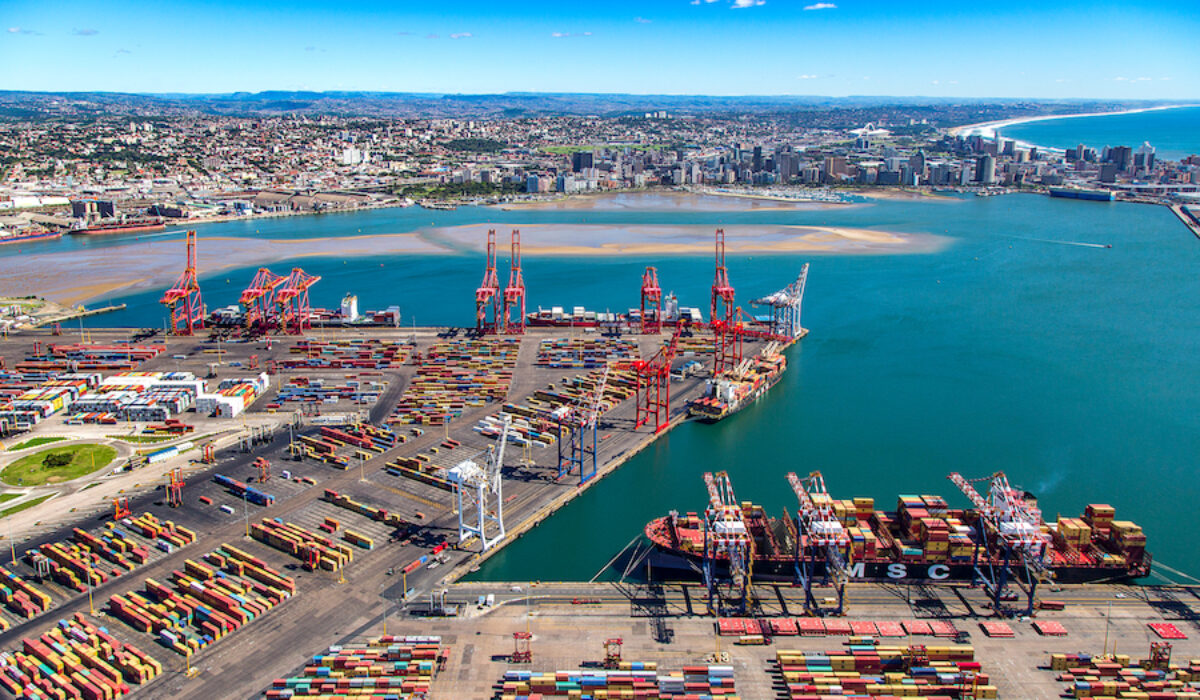Unlocking Durban’s Potential: A CEO’s Insights on Attracting US Investors
In an exclusive interview, Russell Curtis, CEO of Invest Durban, shares his perspectives on what draws US investors to Africa’s shores. Delving into the nuanced requirements and opportunities, Curtis sheds light on the thriving sectors and the city’s unique appeal.
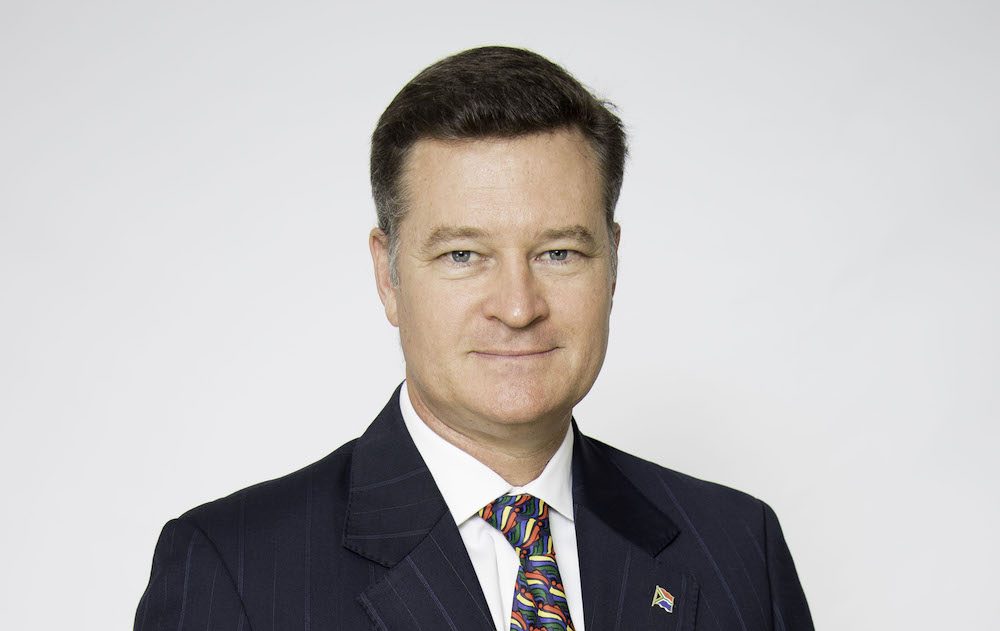
CEO Insight: What are US investors after when seeking a foothold in Africa? And do they have any different requirements to other investors?
Russell Curtis: I think for most investors there’s a general set of investment prerequisites, investment requirements starting from the first principles, the most fundamental basic. Rule of law. Access to capital, title to land, respect for intellectual property, and then going on to other items which are on every investor’s wish list the US and others and that is access to management, access to technical skills, access to markets. And so, a good logistics infrastructure.
So, the requirements for US investors and other investors, I think largely are quite similar and I am happy to say that on that front, South Africa as a country as well as Durban as a metropolitan city, we do have all of that and in fact we lead the country in a number of different areas. For example, in our logistics infrastructure with the port of Durban. Being the largest in sub-Saharan Africa.
CEO Insight: What industries are you looking to attract?
Russell Curtis: We have quite a diversified economy already and so that gives us good background, good opportunities, good peer references across primary, secondary, and tertiary sectors. We are not too heavily predicated on any one sector. And so, as a result, the future going forward, we are looking to further expand all forms of manufacturing, so we have quite some high-tech manufacturing with Toyota Automotive having their largest African manufacturing footprint in Durban. Unilever on food and beverage, they have some of their best-in-class global manufacturing facilities in Durban. So manufacturing, the first one, information, communication technologies, we have a big call center industry, a big electronics industry.
“There’s a dynamic that has been growing much more powerfully across Durban and across South Africa and that is where the business sector leadership and other sectors are forming.”
They’re still looking to do lots more there. We shoehorn film and multimedia production in there as well. Durban is a wonderful place for film and outdoor elements. Tourism investment. You know, we’ve got 100 kilometers of bronze Golden Beach on our coast, so tourism investments are. Still, something like that? We are keen to have we don’t have a ski Dubai, yet we don’t have a London Eye yet.
We don’t have a Club Med yet, but all these things are coming on the go. Two thirds of our metropolitan is rural and so we’re very much interested in Agri investments and in particular Agri processing investments. So, we’ve got some significant international companies that have set up here, Unilever, I mentioned already, Kerry Foods is another one. So Agri processing is something that we’re still going hard after. Pushing a lot more nowadays into life sciences.
So, health and pharma, we’ve had an embedded pharmaceuticals Industry for quite some time here, largely in generics. So, you would have seen the likes of Aspen Pharmaceuticals, their global headquarters in Durban. So, life sciences and health investments into that space and really cross cutting them all. Then the green economy, whether that be on renewable energy or energy efficiency or any of the materials that go into that. So, we’ve got targets across the broad sector.
CEO Insight: What more needs to be done to appeal to US investors?
Russell Curtis: I think it would be remiss if we didn’t touch on the elephant in the room and that is politics. You know the world is becoming increasingly tense. The world is becoming increasingly geopolitical. South Africa is part of the non-aligned movement and so I think we need to continue to reinforce that nonaligned status in as much as trying to be a bit more like the Switzerland of Africa where we don’t have to choose between party a or party b, we can in fact have multilateral relationships for mutual benefit. And so, I think we as South Africa need to do more to demonstrate that to US investors and US audiences, you know negative news sells and sometimes certain politicians get a bit too excited with their particular ideology, which doesn’t always align with business, whether that’s South African business or global business.
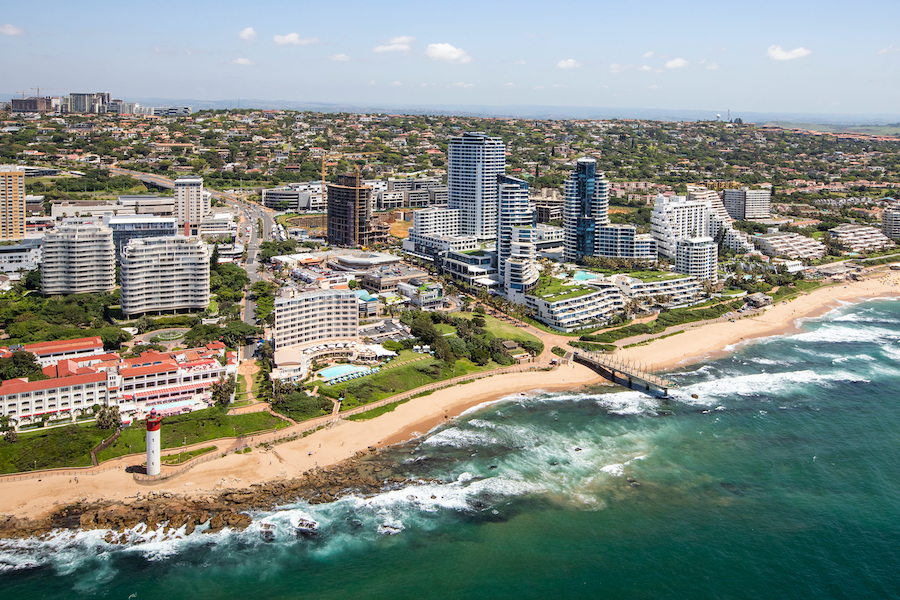
So, you’ve seen South African industry leadership go across to the US and try to reassure American investors and American business that we are definitely open for business with you. Don’t get too caught up in short term politics. So that’s definitely one area that we could do more of, I think a second one is we need to improve our air connectivity between the Americas and South Africa, and Durban in particular, it’s a long haul for sure and we don’t yet, as Durban, have sufficient air connectivity, whether that be for passengers or for freight between the Americas and Durban.
I think that’s just a case of us not marketing ourselves, really not positioning ourselves. We have the newest, most award-winning airport built here in the City of Durban. It opened in 2010 and is winning Skytrax awards for both freight growth and passenger amenities. So, the platform is there infrastructurally from the Durban leg. We just need to keep building that business case for air connectivity between the Americas and Durban whether that be for freight or whether that be for passengers. So, these are two areas we can do a lot more on.
CEO Insight: What are some of the stumbling blocks in marketing to the US investor?
Russell Curtis: You’ll see a great dynamic in in Durban and it’s reflected across South Africa in as much as deepening the public private partnerships with business leadership. And it’s through that B2B engagement that we are already doing a lot more domestically, whether that be on our infrastructure, whether that be on our education system, whether that be on agriculture, environmental issues.
There’s a dynamic that has been growing much more powerfully across Durban and across South Africa and that is where the business sector leadership and other sectors are forming, much more visible, vocal, and practical partnerships at a public sector level. And so, we’d like to springboard from that national dynamic across to the US and the Americas on that B2B basis. Rather than just government going across to US businesses and saying trust me, believe me, I promise I’m telling the truth.
We go with business partnerships and business leadership and speak an economic language and resonate. So, we are still, a metropolitan city agency. And so, we have budgetary constraints, you know, and the US market is gigantic. So where does one invest a lot of time and effort there, the obvious centers, you know that we need to look for resonance, with parts of the US, and so we’re seeing, for example, in the Carolinas, in, in the Southern states, they’re also strong in manufacturing global manufacturing. They’re also strong in global logistics. They’re also strong in air connectivity. And so, we’re looking to try and target some of those areas whilst maintaining relationships with our sister cities, such as Chicago and Los Angeles
CEO Insight: Are you looking to appeal to the US already in Africa?
Russell Curtis: We are under no illusion that retaining and expanding the existing business that we’ve got is an absolute prerequisite. There’s no point in trying to turn the taps of the bath or the shower on faster. If you haven’t got the plug in the bath and retain your existing business. So, a key focus for us is retaining and expanding the international investor base that we’ already have. It is a key theme that we apply financial and human resources too. We’ve got an investor retention plan that was co-developed with the World Bank and IFC experts.
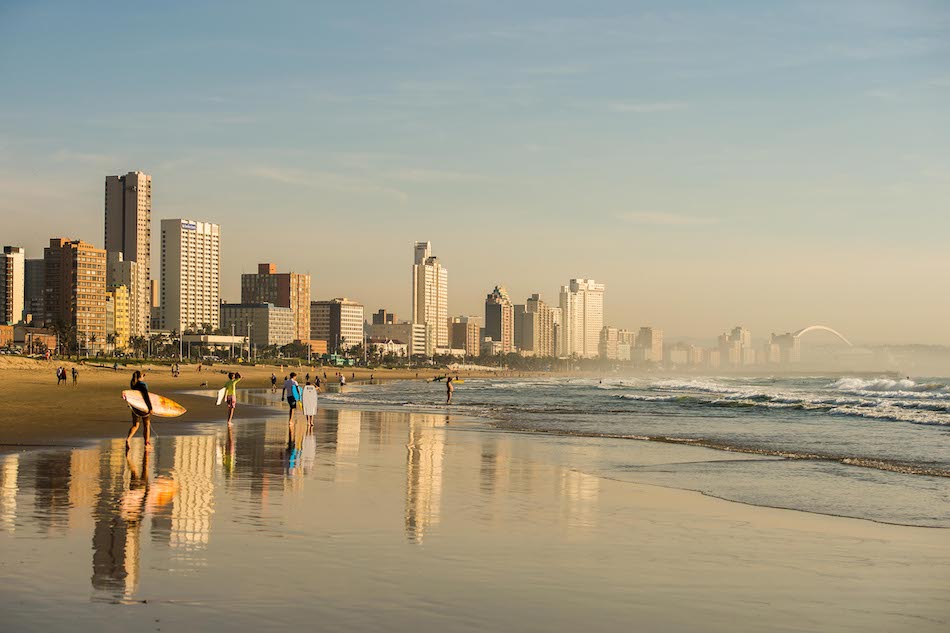
It’s backed up with a technology tool and a customer relationship management sense. So, keeping what we’ve got expanding is absolutely essential. But we’re not satisfied with that. We need more, desperately more, and not only do we need it, but I also think the African continent provides the last frontier of double-digit growth rates for global companies to come in and access, whether that be in financial services, food and Beverage, healthcare, education, telecoms, waterpower, you name it. And Durban and South Africa being a great springboard to attack that African continental opportunity.
CEO Insight: How best would you describe the spirit of entrepreneurship and innovation across Durban?
Russell Curtis: We’ve got embedded resources, we’ve got embedded attributes, but they need to be leveraged more. They need to be tapped into more. The world needs to know about it a lot more. And so, what we say here in the city of Durban is while South Africa in the past has been known as the rainbow nation with multiple cultures, we say that the colours of the rainbow nation in fact burn the brightest from the city of Durban. I’ll give you some simple examples. The City of Durban has got the largest embedded base of residents holding European passports.
The City of Durban has got the largest population of Indian descent in one city outside of the Indian continent. The City of Durban is home to melting pot of the African tribal traditional cultures. Likewise, we have a rich history in other Asian cultures here too, Taiwanese, Chinese, Malaysian. So, we have these strengths, I would say diversity is our strength where we can each appropriate the positives and strengths of each other’s cultures and build on that.
What in the US markets they might call the melting pot. So, we offer that same US melting pot example here in a Durban context and to push the entrepreneurial elements from the fact we are natural English speaking language population across the different cultures. We Follow the ancient Roman Dutch law in our current modern law, and so there are a lot of easy similarities and plug and play for entrepreneurship, corporate business and just lifestyle.
CEO Insight: What are the advantages of being early to the party and why is now the time?
Russell Curtis: We are, as a city of Durban, we are something of an undiscovered gem and that’s not just my line. You know, we first popped our head above the parapets to the global audiences with our 2010 FIFA World Cup and I think it was either the New York Times or Washington Post, that reported, “Durban, where have You been all my life.” And so, we still have that something of an undiscovered gem status. And that brings latent opportunities for US investors. That brings untapped potential for US investors. I’ll give one simple example. A few years ago, we ranked in the Knight Frank Global Residential Cities Index. In the top. 50 cities around the world, and this was based on dollar U.S. dollar-based ROI. Or investment in residential property. OK, it was a few years ago now, about five years ago. We were number one in South Africa, number one on African continent and position #26. So, this is just one simple example of this latent opportunity. This untapped potential, where in terms of whether you use the strict investor terms of ROI or IRR or the more colloquial term of bang for your buck, you’ll find bringing the almighty greenback into Durban. A, you can live like a king and b, your almighty greenback will make your labour costs very affordable. It will make your utilities very affordable and all your capital expenses ready for what you must set up, having a Rand based cost but coming in with the with the, the US dollar is win win.
CEO Insight: What would be some of the tax benefits and incentives that could be available to the US investor?
Russell Curtis: Like most regions around the world, we have different spheres of government. And in South Africa, we have a national sphere, a provincial sphere, which the US market would call a state, and then the metropolitan sphere of government. And between these three spheres of government, we combine in offering various financial incentives for investors, whether they be on, the capital costs, whether they be on some of the operating costs, whether they be on the setup costs or some of the labour costs. For us, at a metropolitan government level, we offer a municipal property rate rebates. So, one of our taxes which you know exists in many places around the world is we have a valuation based municipal property rates tax, which gets charged. Now with investments coming in. We have a very clearly defined municipal property rates rebate incentive. So, it’s based on the amount that you invest and the number of jobs you plan to create over time.
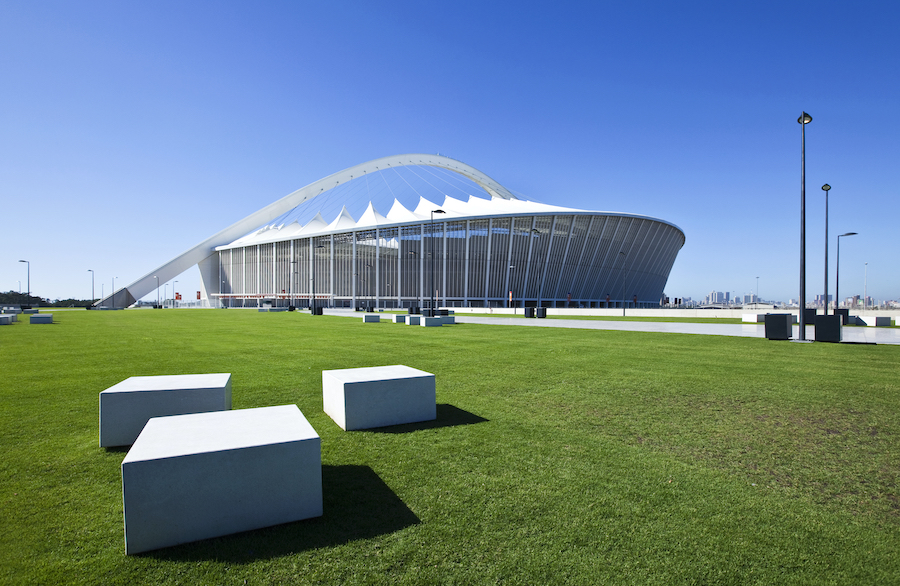
You can get upwards of a 100% rebate on that for a number of years. Then through to provincial sphere of government. Those are quite often located in special economic zones. So, in our province we’ve got 2 SEZ’s. ‘And those SEZ’s then allow for a company going in to have a rent-free period whilst they’re going through construction and commissioning. They can get various labour cost incentives. And probably the most exciting is a 50% reduction in corporate tax rate. National corporate tax rates inside those SEZ’s. Then at the national level, we’ve got a number of national incentives, some of them are sector specific, so contact centres, or infrastructure specific. So yes, we’ve got a range of financial incentives as well as non-financial incentives. So, one of our non-financial incentives is to try to help fast track your regulatory approvals, to help bring more intellectual weight to your decision making around different sites. So, it’s a basket for me of incentives, financial and non-financial.
CEO Insight: Can you highlight some stand out success stories and Investment opportunities in Durban?
Russell Curtis: We’ve had a number of success stories over the years, international brands setting up here from Samsung Electronics, Unilever, Toyota and then in the South African context more broadly, some of the US brands such as Ford and many others are investing in manufacturing. The opportunities in Durban springboard off a range of what we call catalytic projects. So, we have this term catalytic project, it’s a National Treasury term. So, you’ll find a basket of catalytic projects in all 8 metros of South Africa and those are providing platforms of opportunity. Whether it’s for large industrial investment. Whether it’s for commercial office space investment, whether it’s for food and beverage manufacturing or for these catalytic projects where we are converting virgin ground into industrial parks where we are revitalizing our town centers, our inner city, urban regeneration areas where we’re pushing development or certain tourism assets. So, one of the ones I can say because it popped into the media, was club med’s looking to develop a significant investment on our coastline. So yes, we’ve got a number of success stories in the past and I do believe there will be quite a rich future going forward.
The opportunity is in tapping into the value chains of multinationals. So, multinationals, a, all want to look at the African continent and so springboard off of Durban and South Africa to attack that 1.3-1.4-billion-person market, but then also all of your first and 2nd tier suppliers into those multinationals, because multinationals control about 80-85% of global trade, more of them coming. And so that brings second and third tier supply opportunities into the value chains of those multinationals.
You can view the video interview here

